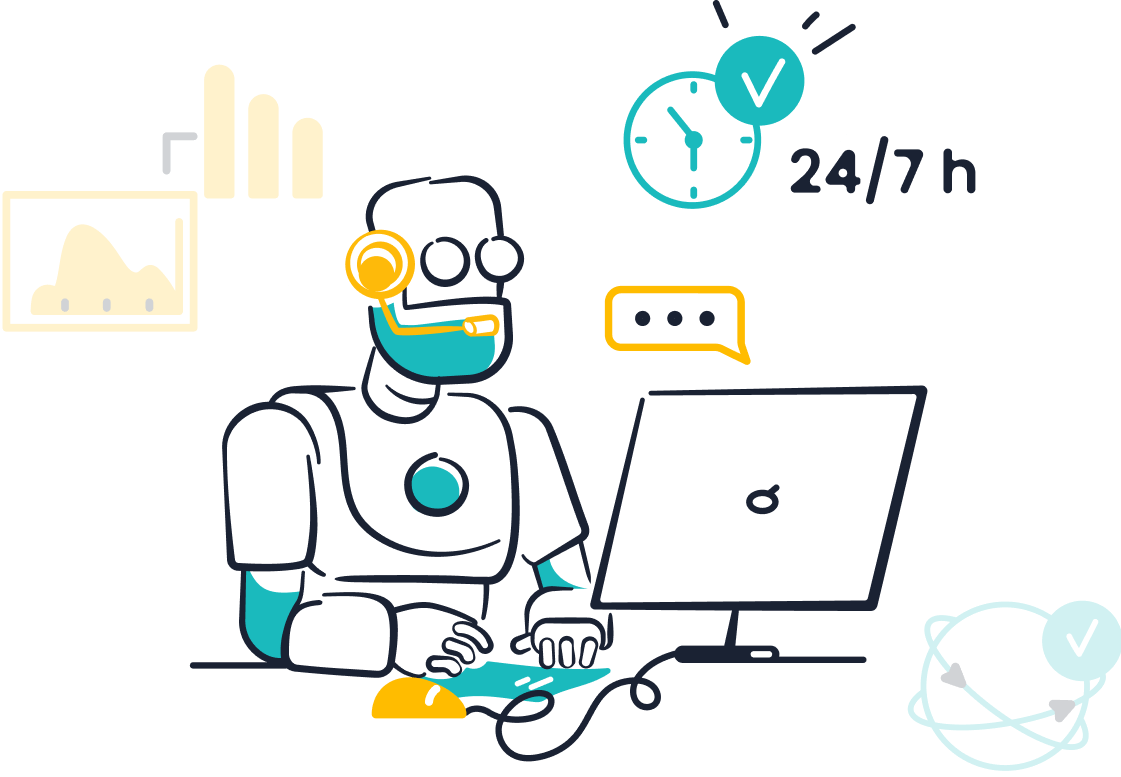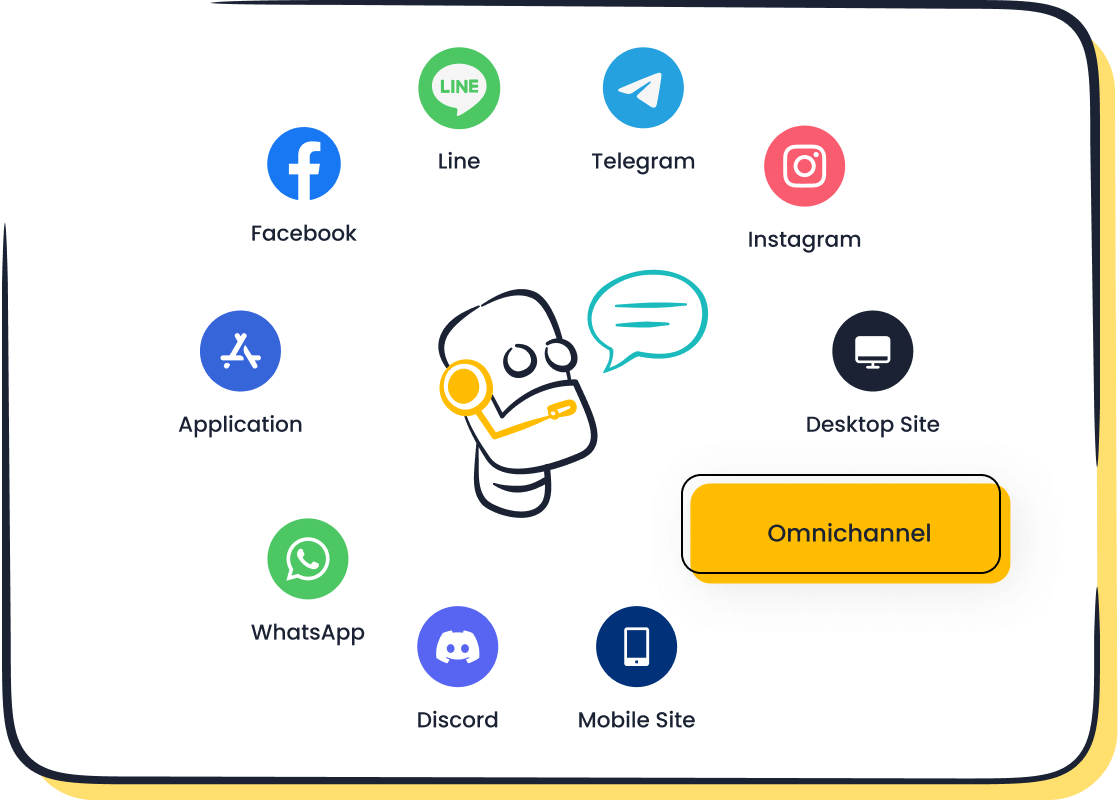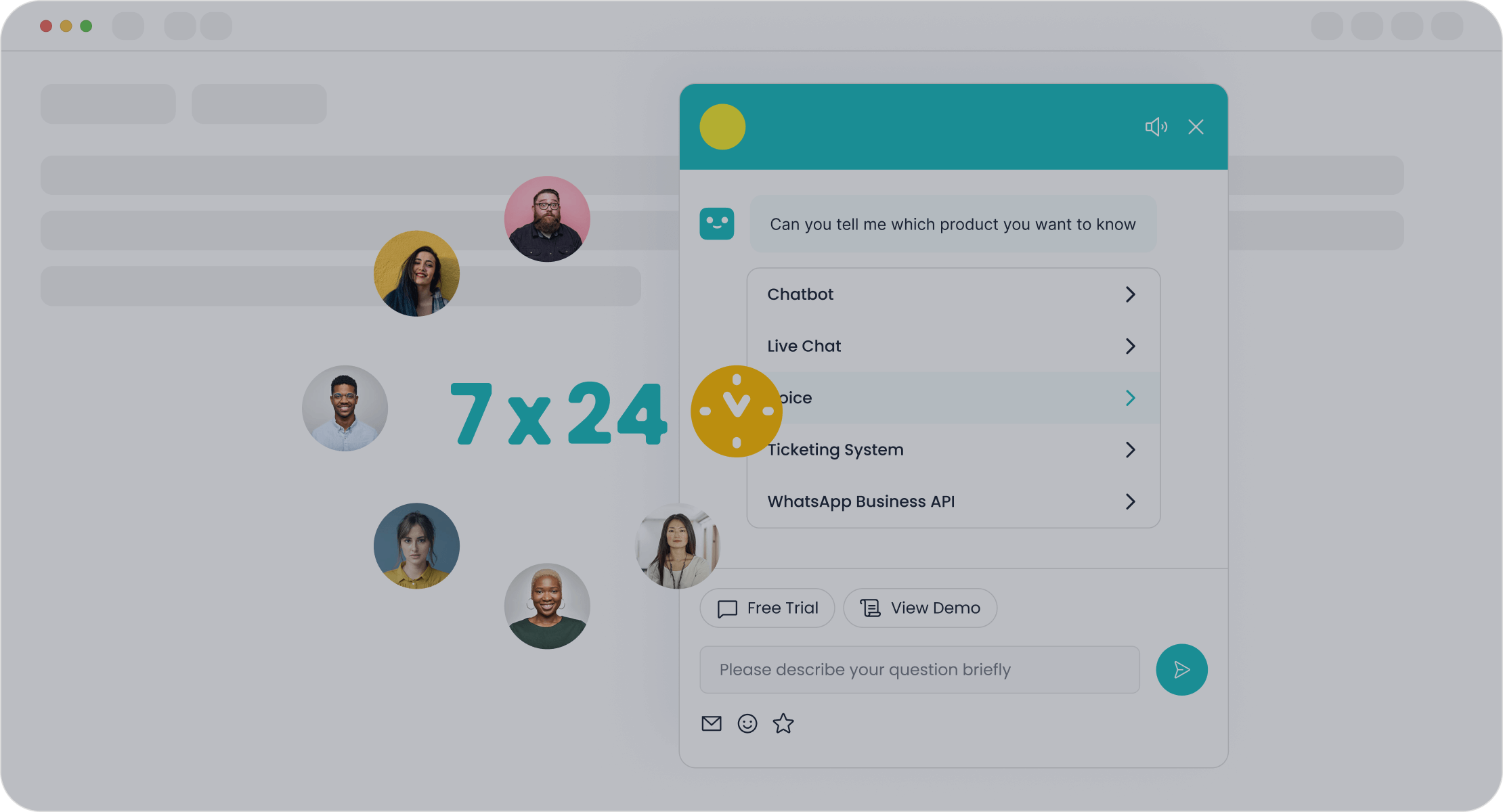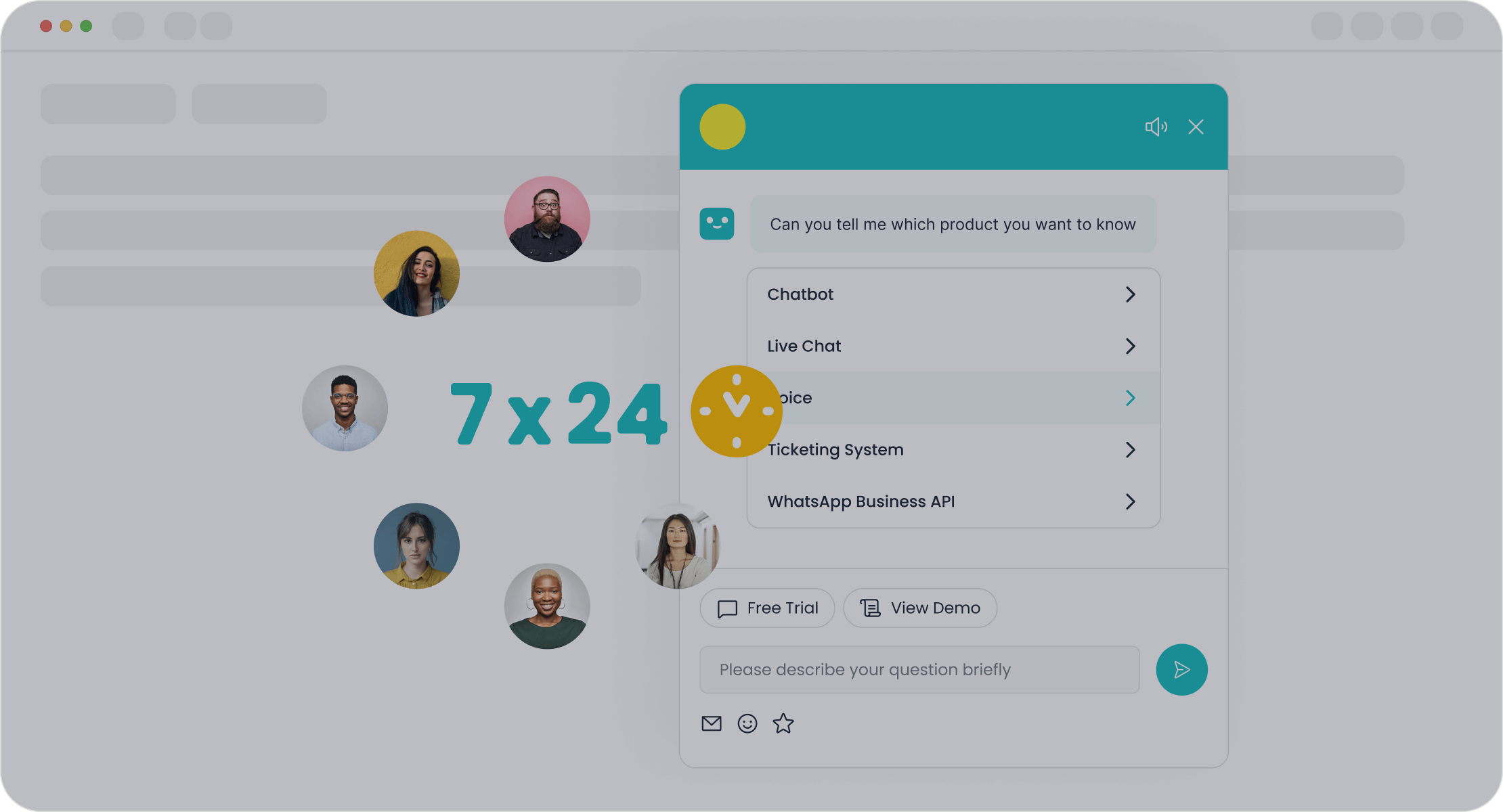How AI Agents Revolutionize Customer Care Operations

AI is revolutionizing how businesses handle customer service. By automating repetitive tasks, the customer care AI agent streamlines operations and improves efficiency. For example, companies using AI report a 37% drop in first response times and resolve tickets 52% faster. These tools also reduce operational costs by up to 90%, allowing businesses to handle more inquiries without hiring additional staff.
Sobot’s chatbot exemplifies this transformation. It operates 24/7, providing instant responses and enhancing the customer experience. With AI, you can meet the growing demand for faster replies, as 90% of customers now expect immediate answers. This shift not only boosts satisfaction but also increases revenue by 32%. AI customer service solutions like Sobot are truly transforming customer service.
Understanding Customer Care AI Agents
What Are AI Agents?
Definition and characteristics of AI agents in customer service.

AI agents are intelligent systems designed to handle customer interactions autonomously. These systems use advanced technologies like machine learning and natural language processing (NLP) to understand and respond to customer queries. Unlike traditional tools, AI agents can learn and adapt over time, making them more effective with each interaction. They operate 24/7, ensuring your customers receive instant assistance, even during peak hours. For example, Sobot's AI chatbot provides multilingual support and resolves repetitive queries, improving productivity by 70%.
AI agents also excel in scalability. They can handle thousands of inquiries simultaneously, something human agents cannot achieve. This capability makes them indispensable for businesses aiming to enhance efficiency and reduce costs. With AI-driven automation, you can streamline operations and focus on delivering exceptional customer experiences.
How AI agents differ from traditional customer support tools.
Traditional customer support tools rely heavily on human intervention. They often involve static scripts or rule-based systems that lack adaptability. In contrast, AI agents use dynamic algorithms to analyze customer data and provide personalized responses. This adaptability allows them to predict customer needs and offer proactive solutions.
AI agents also integrate seamlessly with existing systems like CRM and helpdesk software. This integration ensures a unified view of customer interactions across channels. For instance, Sobot's chatbot connects with platforms like WhatsApp and SMS, offering omnichannel support. This feature not only enhances customer satisfaction but also simplifies your operational workflows.
The Role of AI Agents in Customer Care
Automating repetitive tasks to improve contact center efficiency.
AI agents excel at automating repetitive tasks, such as answering FAQs or processing simple requests. This automation significantly boosts contact center efficiency. According to recent data, 68% of companies using chatbots report reduced staffing needs during peak seasons. By handling routine queries, AI agents free up your human agents to focus on complex issues, improving overall productivity.
Enhancing customer interactions with natural language processing (NLP).
NLP enables AI agents to understand and interpret human language, making interactions more natural and engaging. This technology allows AI agents to analyze customer sentiment and tailor responses accordingly. For example, Sobot's chatbot uses NLP to provide accurate and context-aware replies, enhancing customer interactions. This capability fosters stronger relationships and improves customer satisfaction.
Supporting human agents with real-time insights and suggestions.
AI agents don't just work independently; they also support human agents by providing real-time insights and suggestions. These insights help agents resolve issues faster and more effectively. For instance, AI can analyze past interactions to recommend the best course of action. This collaboration between AI and human agents ensures a seamless and efficient customer service experience.

Key Benefits of AI Customer Service Solutions

Boosting Efficiency
Faster response times through automation.
AI in customer service ensures faster response times by automating routine tasks. Chatbots, like Sobot's AI-powered solution, handle repetitive queries instantly, reducing the workload on human agents. This automation allows your team to focus on complex issues, improving overall efficiency. For instance, companies using AI report a 37% drop in first response times, as noted by Gorgias. AkzoNobel, a global brand, reduced its average response time from six hours to just 70 minutes with AI tools. These improvements not only enhance operational speed but also elevate the customer experience.
24/7 availability for customer inquiries.

AI customer service solutions operate round the clock, ensuring your customers receive support anytime they need it. Unlike human agents, AI tools never tire, making them ideal for businesses with global operations. Sobot's chatbot, for example, provides 24/7 multilingual support across platforms like WhatsApp and SMS. This constant availability builds trust and ensures quick problem-solving, even during peak hours or holidays. According to Gladly, businesses using AI reduce staffing needs by up to 68% during busy seasons, further boosting efficiency.
Enhancing Personalization
Using AI to analyze customer data for tailored responses.
AI excels at customer personalization by analyzing data to craft tailored responses. Tools like Sobot's chatbot use machine learning to understand customer preferences and deliver personalized interactions. For example, Spotify's AI-driven recommendations generate over 2.3 billion streams monthly, showcasing how personalization enhances user engagement. By leveraging AI, you can create meaningful connections with your audience, improving customer satisfaction and loyalty.
Predicting customer needs based on past interactions.
AI customer service tools predict customer needs by analyzing past interactions. This predictive capability allows you to offer proactive solutions, enhancing the overall experience. For instance, The North Face uses AI to recommend products based on user preferences, increasing conversion rates. Sobot's chatbot also uses real-time intent analysis to anticipate customer queries, ensuring seamless and efficient support.
Reducing Costs
Lowering operational costs by reducing reliance on human agents.
AI reduces costs by automating responses and minimizing the need for human agents. Businesses using AI report a 35% reduction in customer service expenses, according to McKinsey. Sobot's chatbot autonomously handles regular queries, saving up to 50% on staffing costs. This cost-effectiveness makes AI an essential tool for scaling operations without significant resource investment.
Scaling support operations without significant resource investment.
AI enables you to scale your support operations effortlessly. Chatbots can handle thousands of inquiries simultaneously, ensuring consistent service quality. This scalability eliminates the need for hiring additional agents during peak periods. With AI, you can maintain high service standards while keeping costs under control, making it a valuable asset for growing businesses.

Improving Customer Experience
Consistent and accurate responses.
AI-powered tools like chatbots ensure consistent service quality by delivering accurate responses every time. Unlike human agents, who may vary in their approach, AI maintains uniformity in handling customer inquiries. This consistency builds trust and reliability in your customer service experience. For example, Sobot's chatbot uses a robust knowledge base to provide precise answers, even for complex queries. It operates 24/7, ensuring your customers always receive reliable support.
Metrics such as First Contact Resolution (FCR) and Customer Satisfaction Score (CSAT) highlight the impact of AI on improving customer experience. Businesses using AI customer service solutions often report higher satisfaction levels due to the accuracy and consistency of responses. By integrating AI into your operations, you can deliver better experiences that meet customer expectations every time.
Reducing wait times and improving satisfaction.
AI significantly reduces wait times by automating routine tasks and handling multiple inquiries simultaneously. Chatbots, like Sobot's AI-powered solution, can resolve repetitive queries instantly, freeing up human agents to focus on more complex issues. This efficiency leads to faster resolutions and better experiences for your customers.
A leading bank recently used AI to streamline its onboarding process, reducing wait times and enhancing convenience. As a result, 83.64% of customers expressed high satisfaction. Metrics such as Average Handle Time (AHT) and Customer Effort Score (CES) further demonstrate how AI improves customer service. By minimizing delays and simplifying interactions, AI ensures a seamless customer service experience that fosters loyalty and satisfaction.
Tip: Implementing AI tools like Sobot's chatbot not only reduces wait times but also enhances personalization, creating personalized interactions that resonate with your customers.
Tools and Technologies Powering AI in Customer Service
Popular AI Solutions
Sobot's Chatbot and its role in customer care.

Sobot's AI-powered chatbot plays a pivotal role in transforming customer service. It automates repetitive tasks, provides instant responses, and operates 24/7. This ensures your customers receive timely support, even during peak hours. The chatbot's multilingual capabilities allow it to cater to diverse audiences, enhancing the overall experience. For example, over 80% of answers provided by Sobot's chatbot are accurate, leading to a 95% customer satisfaction rate. Additionally, it autonomously resolves 22.2% of customer inquiries, reducing the workload on human agents. These features make Sobot's chatbot an essential tool for improving efficiency and customer engagement.
AI-powered ticketing systems and virtual assistants.
AI-powered ticketing systems streamline workflows by automating ticket creation, categorization, and routing. This reduces response times and ensures issues are addressed promptly. Virtual assistants, on the other hand, enhance customer interactions by providing personalized recommendations and real-time assistance. For instance, businesses using AI in customer service report a 33% reduction in wait times and a 36% boost in satisfaction. These tools not only improve operational efficiency but also elevate the customer experience.
Advanced Technologies
Natural language processing (NLP) for understanding customer queries.
NLP enables AI-driven chatbots to understand and interpret human language accurately. This technology allows chatbots to analyze customer sentiment and provide context-aware responses. For example, Sobot's chatbot uses NLP to deliver precise answers, fostering stronger connections with your audience. NLP also helps identify customer needs, enabling proactive support. This ensures your customers feel valued and understood, enhancing their overall experience.
Machine learning for continuous improvement.
Machine learning empowers AI systems to learn from past interactions and improve over time. This ensures your customer service tools remain effective and relevant. For instance, Sobot's chatbot uses machine learning to refine its responses, achieving a CSAT score of 97%. This continuous improvement enhances the chatbot's performance, ensuring it meets your customers' evolving needs. By leveraging machine learning, you can provide consistent and high-quality support.
Integration with Existing Systems
CRM and helpdesk software compatibility.
AI solutions integrate seamlessly with CRM and helpdesk software, providing a unified view of customer interactions. This compatibility ensures your team can access all relevant information in one place, improving response times and resolution rates. For example, an AI helpdesk with a 3-minute average response time demonstrates how integration enhances efficiency. Sobot's chatbot connects with platforms like WhatsApp and SMS, offering omnichannel support and simplifying workflows.
Omnichannel support capabilities.
Omnichannel support allows you to engage with customers across multiple platforms, ensuring a consistent experience. Sobot's chatbot excels in this area, providing seamless interactions on channels like WhatsApp, SMS, and more. This capability ensures your customers receive reliable support, regardless of their preferred communication method. Businesses using omnichannel AI solutions often report higher satisfaction rates, as customers appreciate the convenience and accessibility.
Real-World Applications of AI Agents in Customer Care

Case Studies of Successful Implementation
OPPO's success with Sobot's Chatbot and ticketing system.

OPPO, a global leader in smart devices, faced challenges during peak shopping periods. Customer inquiries surged, leading to long wait times and overwhelmed agents. By integrating Sobot's chatbot and ticketing system, OPPO transformed its customer service. The chatbot handled repetitive queries, allowing human agents to focus on complex issues. This collaboration improved efficiency and reduced response times. Additionally, Sobot optimized OPPO's knowledge base, cutting maintenance efforts by 90%.
The results were remarkable. OPPO achieved an 83% chatbot resolution rate and a 94% positive feedback rate. These improvements contributed to a 57% increase in repurchase rates. This case highlights how AI can enhance customer experience while streamlining operations.
E-commerce companies using AI for order tracking and support.
E-commerce businesses rely heavily on AI to manage high volumes of customer inquiries. Chatbots play a crucial role in providing instant updates on order status and delivery timelines. For example, AI tools can resolve up to 75% of inquiries without human intervention, as seen in Amazon's operations. This reduces wait times and improves customer satisfaction.
AI also enables personalized recommendations based on browsing history and past purchases. This approach increases engagement and drives sales. By adopting AI, e-commerce companies can scale their support operations while maintaining a seamless customer experience.
Industry-Specific Use Cases
AI in healthcare for patient support.
AI is revolutionizing healthcare by offering reliable and efficient patient support. Chatbots assist patients with appointment scheduling, medication reminders, and symptom checks. Over 70% of patients believe AI can transform care delivery, according to Deloitte. These tools provide quick and accurate responses, reducing the burden on healthcare staff.
For instance, AI-powered systems analyze patient data to offer personalized health advice. This improves patient outcomes and satisfaction. By integrating AI, healthcare providers can enhance accessibility and streamline their services.

AI in banking for fraud detection and customer inquiries.
In banking, AI enhances security and customer service. AI systems detect fraudulent activities by analyzing transaction patterns in real time. This proactive approach minimizes risks and protects customers. Additionally, AI chatbots handle routine inquiries, such as account balances and loan applications, with ease.
Nearly 46% of financial institutions report improved customer experience due to AI, according to NVIDIA. By adopting AI, banks can offer faster, more secure, and personalized services, ensuring customer trust and satisfaction.
Implementing AI Agents in Your Customer Care Strategy
Assessing Your Business Needs
Identifying pain points in your current customer support process.
To effectively implement AI agents, you must first identify the challenges in your current customer support process. Start by analyzing response times, resolution rates, and customer satisfaction scores. For instance, the average response time in many industries is over 12 hours, which can lead to customer frustration. Compare this with industry benchmarks, such as a 78% first-call resolution rate in retail, to pinpoint areas for improvement. Understanding these gaps will help you determine where AI can make the most impact, whether it’s reducing wait times or improving ticket resolution rates.
Determining the level of AI integration required.
Once you’ve identified the pain points, decide how much AI integration your business needs. Some companies may benefit from fully automated chatbots, while others might require AI to assist human agents. For example, businesses handling high ticket volumes can use AI to automate repetitive tasks, freeing agents to focus on complex issues. Studies show that 91% of businesses using AI in customer service report satisfaction, with 69% noting improved service quality. This strategic approach ensures you invest in the right level of AI for your operations.
Choosing the Right Tools
Evaluating AI solutions like Sobot's Chatbot.
Selecting the right AI tool is crucial. Evaluate solutions based on ease of use, scalability, and AI capabilities. Sobot's chatbot, for example, offers multilingual support, omnichannel integration, and a no-coding setup, making it ideal for businesses of all sizes. It also provides real-time analytics to track performance and optimize workflows. Look for tools that align with your business goals and can handle increasing customer interactions seamlessly.
Ensuring compatibility with existing systems.
AI tools must integrate smoothly with your existing systems, such as CRM and helpdesk software. Compatibility ensures a unified view of customer interactions, improving efficiency and experience. Sobot’s chatbot excels in this area, connecting with platforms like WhatsApp and SMS. This integration simplifies operations and ensures consistent support across channels. Businesses that prioritize compatibility often see better results, including reduced response times and higher satisfaction rates.
Training and Deployment
Training AI agents with relevant data.
Training your AI agents with accurate and relevant data is essential for success. Use historical customer interactions, FAQs, and sentiment analysis to build a robust knowledge base. For example, Sobot’s chatbot uses machine learning to refine its responses over time, achieving a 97% customer satisfaction score. Effective training ensures your AI agents provide accurate and context-aware support, enhancing the overall customer experience.
Gradual deployment and monitoring for optimization.
Deploying AI agents gradually allows you to monitor their performance and make necessary adjustments. Start with a pilot test to evaluate their effectiveness in handling specific tasks. Metrics like response time, resolution rate, and customer feedback will help you measure success. Businesses that adopt this approach often experience smoother transitions and better outcomes. For instance, AI tools have been shown to reduce wait times by 55%, leading to improved customer satisfaction.
Measuring Success
Tracking key performance indicators (KPIs)
To measure the success of AI in customer service, you need to track specific key performance indicators (KPIs). These metrics help you evaluate how well your AI tools are performing and identify areas for improvement. For example, Customer Satisfaction (CSAT) reflects the quality of support provided, while First Contact Resolution (FCR) measures how effectively customer needs are addressed on the first interaction. Both are critical for understanding the impact of AI on your operations.
Here’s a table summarizing essential KPIs to monitor:
| KPI | Description |
|---|---|
| Customer Satisfaction | Measures improvements in customer experience post-AI implementation. |
| Customer Effort Score (CES) | Assesses how easy it is for users to achieve goals with the AI system. |
| Task Success Rate | Percentage of successfully completed tasks by users, indicating AI effectiveness. |
| Time on Task | Measures the time taken by users to complete tasks, indicating efficiency. |
| User Retention Rate | Percentage of users continuing to use the AI system, reflecting user satisfaction. |
| Latency | Measures AI response time; lower latency indicates better user experience. |
| Helpdesk Inquiries | Number of support requests received; fewer inquiries suggest a user-friendly experience. |
| Customer Satisfaction Score | Central to customer service strategy; reflects the quality of support provided. |
| First Contact Resolution (FCR) | Optimizes customer interactions by addressing needs effectively on the first contact. |
Tracking these KPIs ensures you can measure the efficiency and effectiveness of your AI tools. For instance, Sobot’s chatbot achieves a high CSAT score by providing accurate and timely responses, which directly improves customer satisfaction.
Gathering customer feedback for continuous improvement
Customer feedback plays a vital role in refining your AI systems. By collecting feedback, you can identify gaps in your AI’s performance and make necessary adjustments. For example, if users report difficulty navigating your chatbot, you can optimize its interface to improve the experience. Tools like surveys, ratings, and direct comments help you gather actionable insights.
Sobot’s AI solutions excel in this area by offering real-time analytics and reporting. These features allow you to monitor customer interactions and identify trends. For instance, if your AI system receives consistent praise for quick responses, you can focus on maintaining this strength. On the other hand, if feedback highlights delays, you can work on reducing latency. This continuous improvement ensures your AI tools remain effective and aligned with customer expectations.
Tip: Regularly review feedback and update your AI systems to keep pace with evolving customer needs. This proactive approach enhances both efficiency and satisfaction.
AI agents are reshaping customer care by automating tasks, personalizing interactions, and reducing costs. Industries like retail, healthcare, and banking have seen remarkable improvements. For example:
- In retail, AI agents enhance shopping experiences, boosting satisfaction and sales.
- In healthcare, they streamline appointment scheduling and reduce staff workload.
- In banking, they provide secure, 24/7 support for routine tasks.
Sobot’s AI chatbot exemplifies this transformation. It operates 24/7, handles multilingual queries, and improves productivity by 70%. By adopting AI solutions like Sobot, you can achieve greater efficiency, elevate customer satisfaction, and gain a competitive edge. Now is the time to explore AI and transform your customer care operations.
Tip: Start small with AI tools like Sobot’s chatbot to see immediate benefits in efficiency and customer experience.
FAQ
What are the key benefits of using AI agents in customer care?
AI agents improve efficiency, reduce costs, and enhance customer satisfaction. They handle repetitive tasks, provide 24/7 support, and deliver personalized responses. For example, Sobot's chatbot increases productivity by 70% and saves up to 50% on staffing costs, making it a valuable tool for businesses of all sizes.
Can AI agents integrate with existing customer service systems?
Yes, AI agents integrate seamlessly with systems like CRM and helpdesk software. Sobot's chatbot connects with platforms such as WhatsApp and SMS, ensuring a unified view of customer interactions. This integration simplifies workflows and improves response times, helping you deliver consistent and efficient customer care.
How do AI agents enhance personalization in customer interactions?
AI agents analyze customer data to craft tailored responses. Sobot's chatbot uses machine learning to predict customer needs and provide proactive solutions. For instance, it can recommend products based on past interactions, boosting engagement and satisfaction. Personalization fosters stronger relationships and improves loyalty.
Are AI agents suitable for small businesses?
Absolutely! AI agents like Sobot's chatbot are scalable and cost-effective, making them ideal for small businesses. They automate routine tasks, reduce operational costs, and handle inquiries 24/7. With no coding required, Sobot's chatbot is easy to set up and helps small businesses improve customer care without significant resource investment.
How do AI agents improve customer satisfaction?
AI agents provide instant, accurate, and consistent responses, reducing wait times and enhancing the overall experience. Sobot's chatbot, for example, achieves a 95% customer satisfaction rate by resolving inquiries quickly and effectively. This reliability builds trust and ensures your customers feel valued.
Tip: Start with Sobot's AI chatbot to experience the benefits of AI in customer care. It’s easy to implement and delivers measurable results.
See Also
Transforming Customer Support With AI Service Agents
Enhancing Efficiency Through AI Customer Service Solutions
Evaluating AI Solutions For Enterprise Call Centers